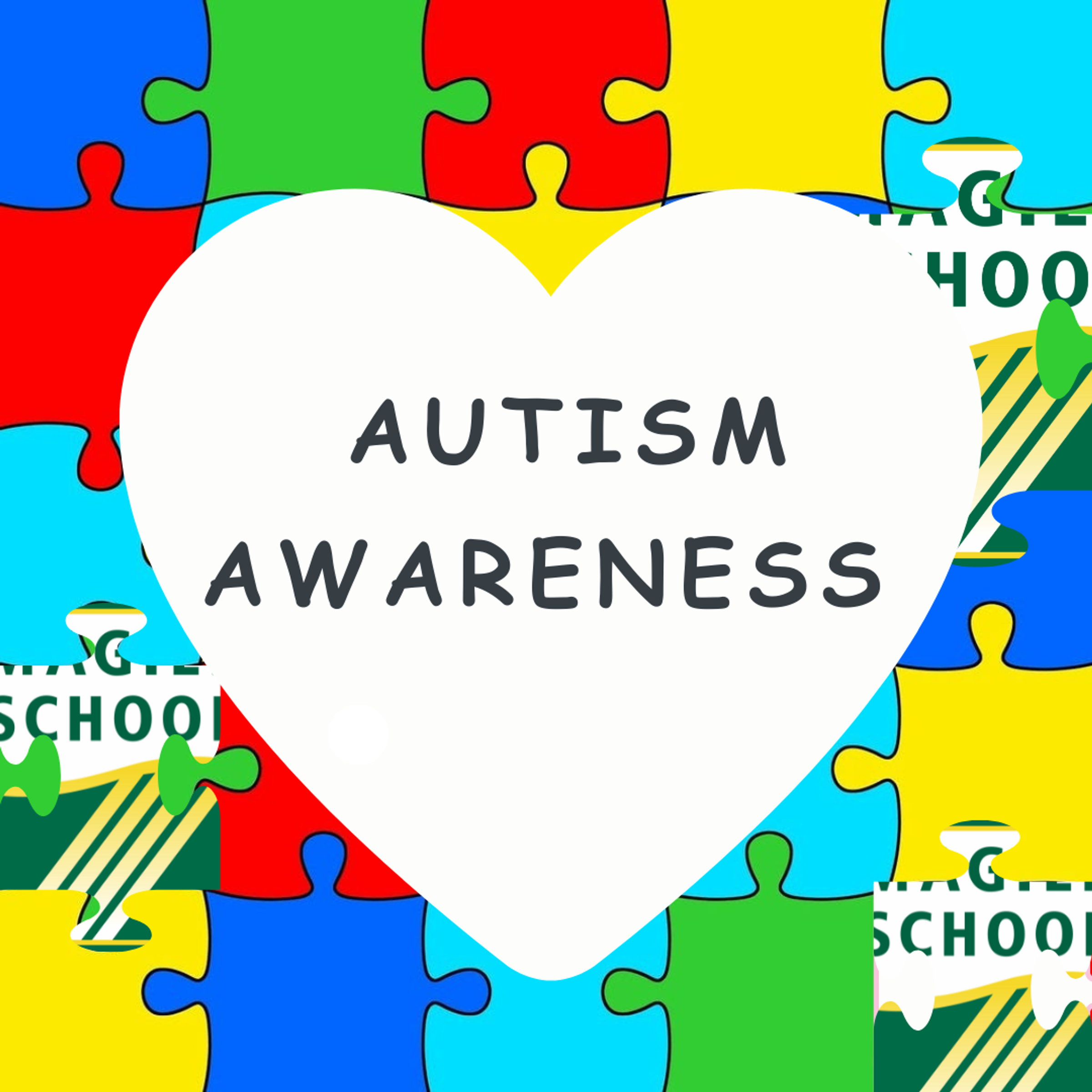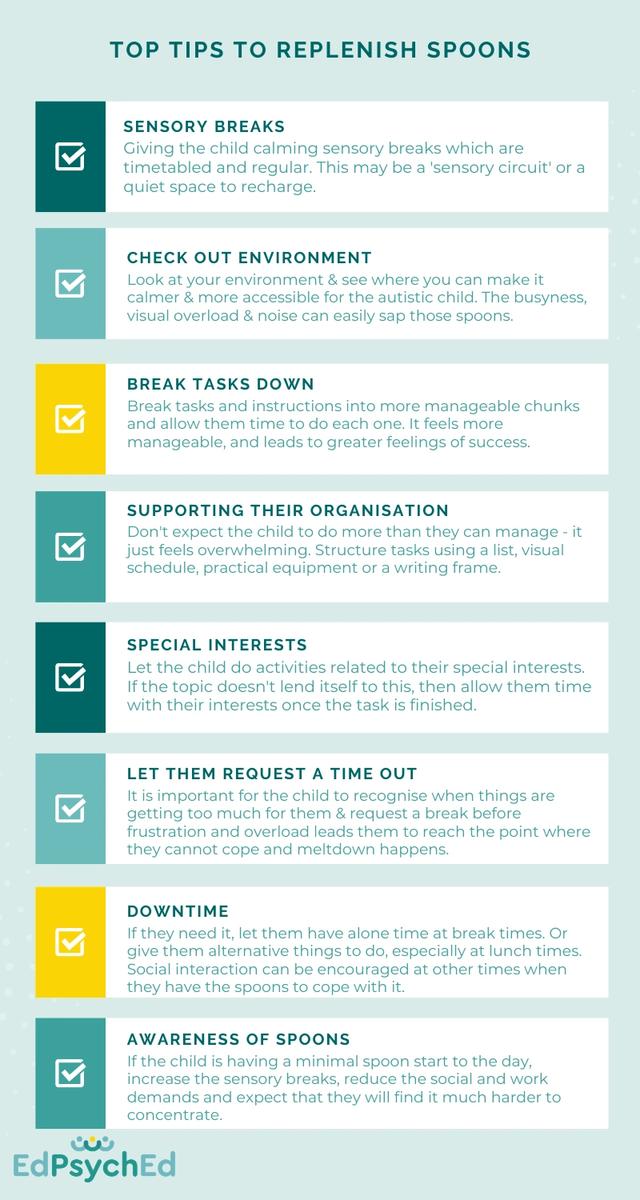Autism Inclusion Teacher

The Spoon Theory and Autism
The spoon theory, originally created by Christine Miserandino when asked about her chronic illness, is a great way of helping us understand why school is such hard work for children with autism.
What is The Spoon Theory?
Let's imagine that the social and intellectual energy a child has each day can be measured in spoons.
A child with autism can start the school day with a full drawer (which may be only half as full as a neurotypical child) or with some of their spoons already used up in dealing with the demands of getting to school. Depending on various factors such as whether they slept, if mum or dad remembered to say goodbye the right way, if their clothes are itching their skin, if their routine was changed, or any number of other seemingly incidental events, they may be starting the day with, say, only 5 spoons instead of 10.
Then, they need to start using their spoons. Each set of instructions, each set of work demands, each time they have to organise themselves, follow a complex set of instructions, or cope with change, and each social interaction may cost the child a spoon. If there are sensory sensations that are overwhelming, then another spoon is used up in regulating and keeping calm. If the child has to work in a group, more than one spoon may be needed. If break times weren't relaxing, another spoon or two is used up in coping with all the social interaction, noise and lack of structure. Some children manage to save a spoon by shutting off, taking the time to be alone, so that they can cope with the next set of lessons.
When there are no more spoons...
When a child has used up all their spoons they may have no communication, organisation, sensory, social or intellectual energy left. They might just be able to keep it together in the morning, but then are far too exhausted to carry on in the afternoon. Some days there may be no spoons to deal with the things they usually seem okay with. They might even be able to keep it together through the day but cannot contain themselves in the safety and familiarity of their home. Some children even manage to borrow spoons from the next day but there will be a day when there are no spoons left to borrow and the child has a major meltdown.
How We Can Help
With kindness,
Lisa Williams


